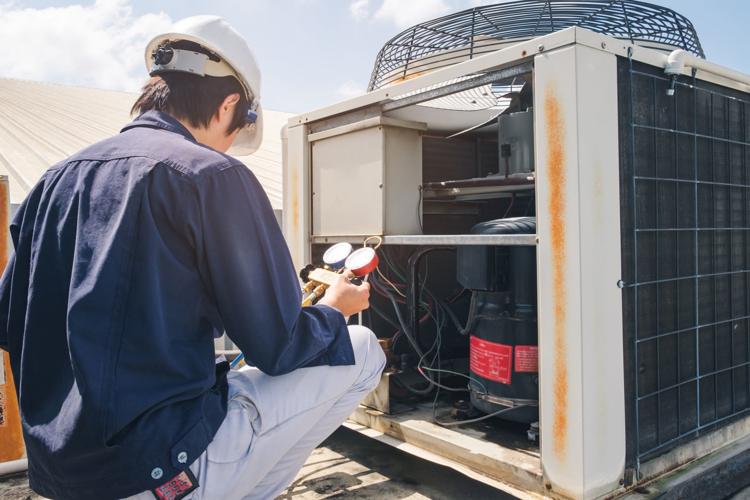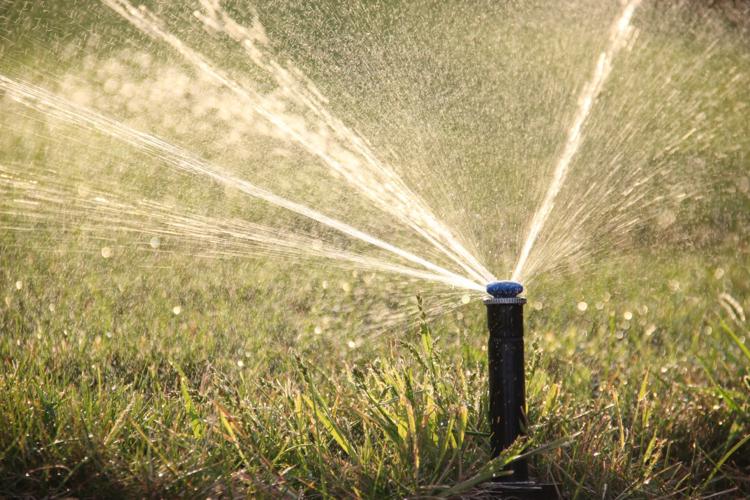Question: I sense a change in the air with the cooler temperatures this week. What is the best way to scale back on watering? Should I invest in one of the new smart watering systems?
Answer: Irrigation can be tricky. Our plants and landscape are living and breathing organisms, requiring close attention to detail. While there are smart watering systems, they can be difficult and time-consuming to program. The smartest thing a homeowner can do is to become a student of their unique yard. Watering systems should be adjusted every quarter.
When the seasons change, cutting back on watering frequency but not length of watering is the key! Plants and trees still require deep watering regardless of the time of year. Watering should reach 1 to 3 feet below the surface depending on the size of the plant. Larger plants, like trees and shrubs, need deep watering to build healthy root systems. As the days and evenings grow cooler we can begin to back off one watering cycle at a time. Be proactive, not reactive to the plants and their water requirements. When we get a good rain, it may be possible to turn off the system for a while. Even the increase in cloud cover and humidity can reduce your plants’ water needs.
Q: Is it necessary to have my fireplace cleaned every year?
A: Homes with a gas fireplace should definitely have the gas lines checked annually. A good fireplace repair company can check the flue, the flue pipe and clean the gas logs as well.
Safety Tip: There are two types of gas logs — vented and vent free. Knowing the difference is important as the flue requirements are different. Vent-free logs burn behind a glass pane and don’t require ventilation and can therefore be operated with the flue closed. Vented logs require that the flue be opened at all times.
The rule of thumb for wood burning fireplaces is to have them cleaned of creosote buildup every 5 years or once for every chord of wood that is burned in the fireplace, whichever comes first. As with the gas fireplaces be sure to have the flue checked as well.
Having a spark arrester or chimney cap for both types of fireplaces is a must. Not only does it keep sparks from ascending the chimney and landing on the roof, but it also keeps birds and rain out of your home.
Q: What do I need to think about when transitioning between air conditioning and heating my home?
A: Air Conditioning units are best serviced two times a year. Consider having your unit serviced at the end of your cooling season as well as in the spring. They are a significant investment and will give you years of good service if you are proactive with their maintenance.
It is important to check the filters even in the winter and change them if they show dirt and dust. Generally, a 1” paper pleated filter works the best. Be sure to check with your AC company if you are not sure which filter works with your unit.
Evaporative coolers are still preferred by some homeowners. They are a great source of cooling when the humidity is 25% and below. When the days are no longer warm enough to require cooling drain water and thoroughly clean the unit. Covering the unit is not required but can help to extend the life of the unit. Be sure it is clean and dry first!
Heating: Most people start to think about heating their homes when the morning temperatures hit 60 or below. This is also the time to have your annual heating tune-up. If you have gas heat, the tune-up should include a full inspection of the unit including safety check for the gas line and an inspection of the ignitor.
An electric heat pump should be serviced at least once a year as well making sure the reversing valve is in good working order.
Q: Can I quit using chemicals in my pool for the winter? Is winter a good time to make pool repairs?
A: It is not recommended to let your pool go without chemicals. But once the nights cool down below 80 degrees it is time to assess the amount of chemicals we are using and the run time of the motor. The motor can be reduced by a couple of hours a day and run during off-peak hours. Be sure to test your pool water or have it tested at your local pool supply to make sure you are not wasting money by over chlorinating. To keep pools running efficiently, remember to check pool baskets for leaves as deciduous trees begin to shed and drop into your pool.
If your pool plaster or tile needs replacing it must be done in the cooler months. Rosie on the House Certified Partner Omni Pools can make your pool look as good as new!
Pool water needs to be replaced every couple of years. Traditionally, that means waiting until the daytime highs are below 80. However, pool water can be recycled any time of year with the reverse osmosis process used by statewide Rosie Certified Partner Arizona Pool Water Recycling.





